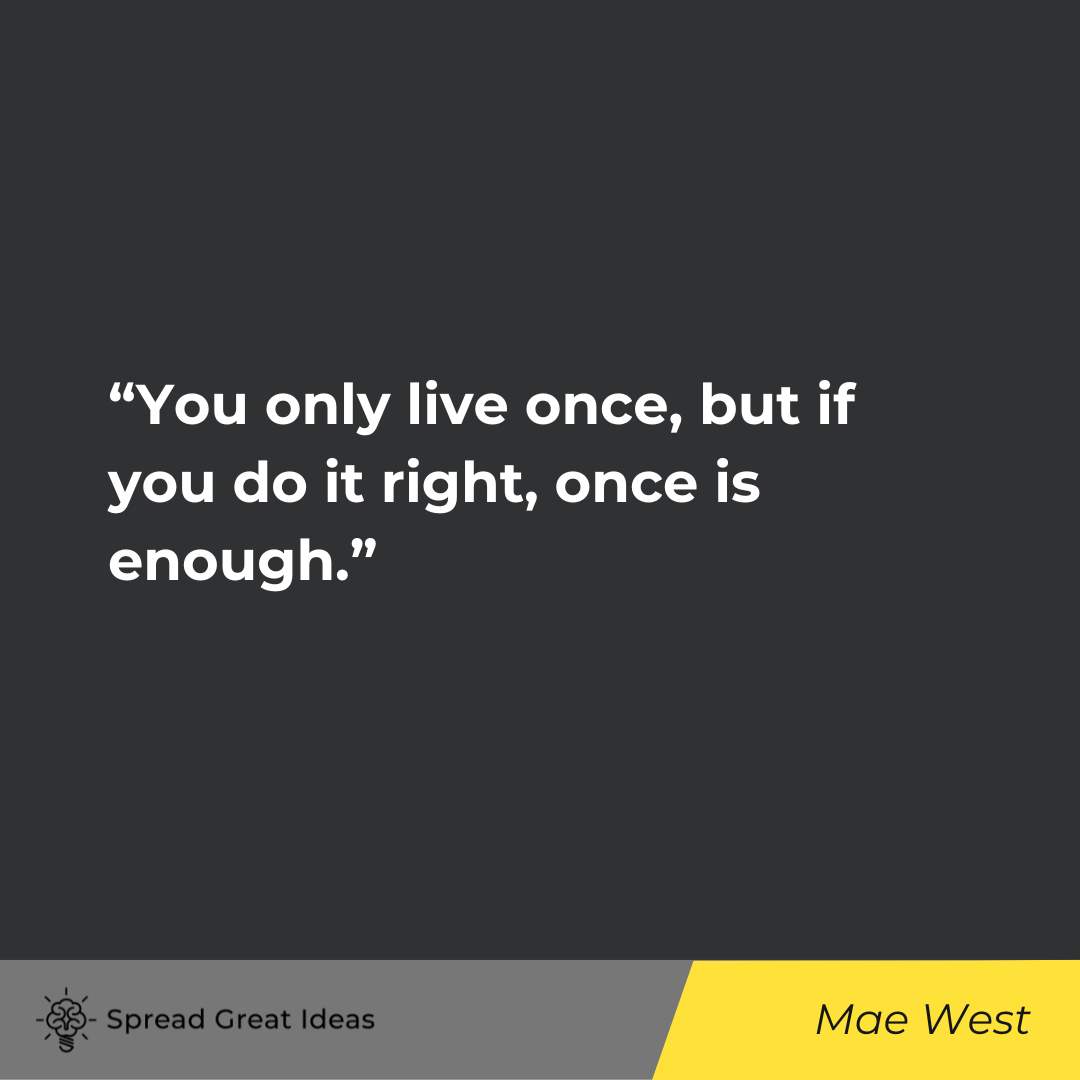Table of Contents

So remember, when you’re feeling very small and insecure,
How amazingly unlikely is your birth,
And pray that there’s intelligent life somewhere up in space,
‘Cause there’s bugger all down here on Earth.
– Monty Python’s The Meaning of Life
Life can often be a perplexing and daunting journey, filled with joyful moments and crushing disappointments, and it can often leave us searching for answers. When we contemplate our lives it encourages us to look inward and think carefully about the choices we’ve made.
This can often cause discomfort as we look at ourselves and challenge the common assumptions that we may have about our own lives and the world around us.
The quotes in this collection explore a wide range of topics, from the power of intuition to the value of rationality and learning from failure. Each quote will lead you on a thought-provoking path and challenge your preconceived ideas about life.
Quotes About Being Rational and Accepting Facts
Alexis de Tocqueville
“The practice which obtains amongst the Americans of fixing the standard of their judgment in themselves alone, leads them to other habits of mind. As they perceive that they succeed in resolving without assistance all the little difficulties which their practical life presents, they readily conclude that everything in the world may be explained, and that nothing in it transcends the limits of the understanding. Thus they fall to denying what they cannot comprehend; which leaves them but little faith for whatever is extraordinary, and an almost insurmountable distaste for whatever is supernatural.”
– Alexis de Tocqueville, Democracy in America Volume 2
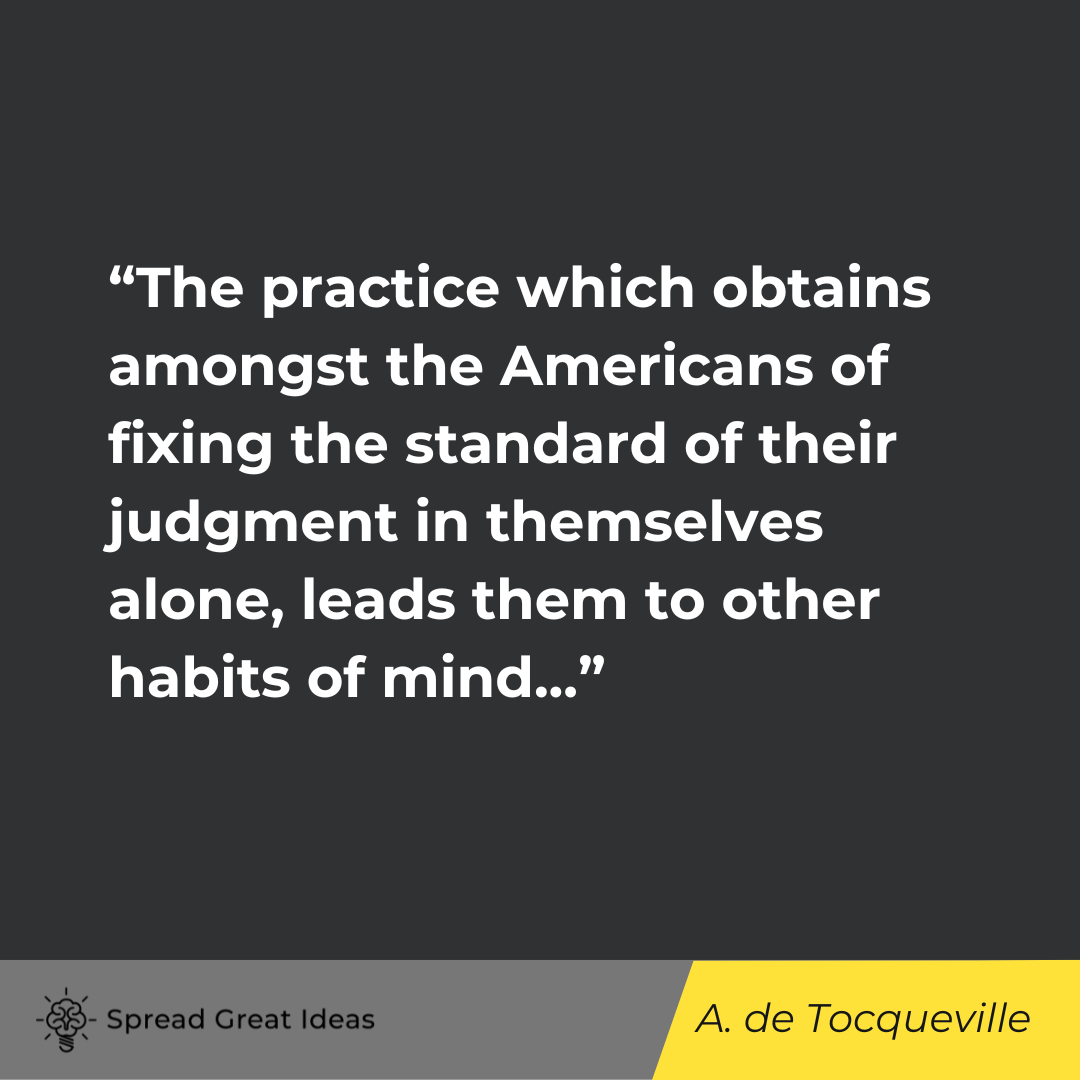
Marcus Aurelius
“The opinion of 10,000 men is of no value if none of them know anything about the subject.”

Benjamin Franklin
“Friends and neighbors complain that taxes are indeed very heavy, and if those laid on by the government were the only ones we had to pay, we might more easily discharge them; but we have many others, and much more grievous to some of us. We are taxed twice as much by our idleness, three times as much by our pride, and four times as much by our folly; and from these taxes the commissioners cannot ease or deliver us by allowing an abatement. However, let us hearken to good advice, and something may be done for us: ‘God helps them that help themselves’ as Poor Richard says.”
– Benjamin Franklin, The Way to Wealth
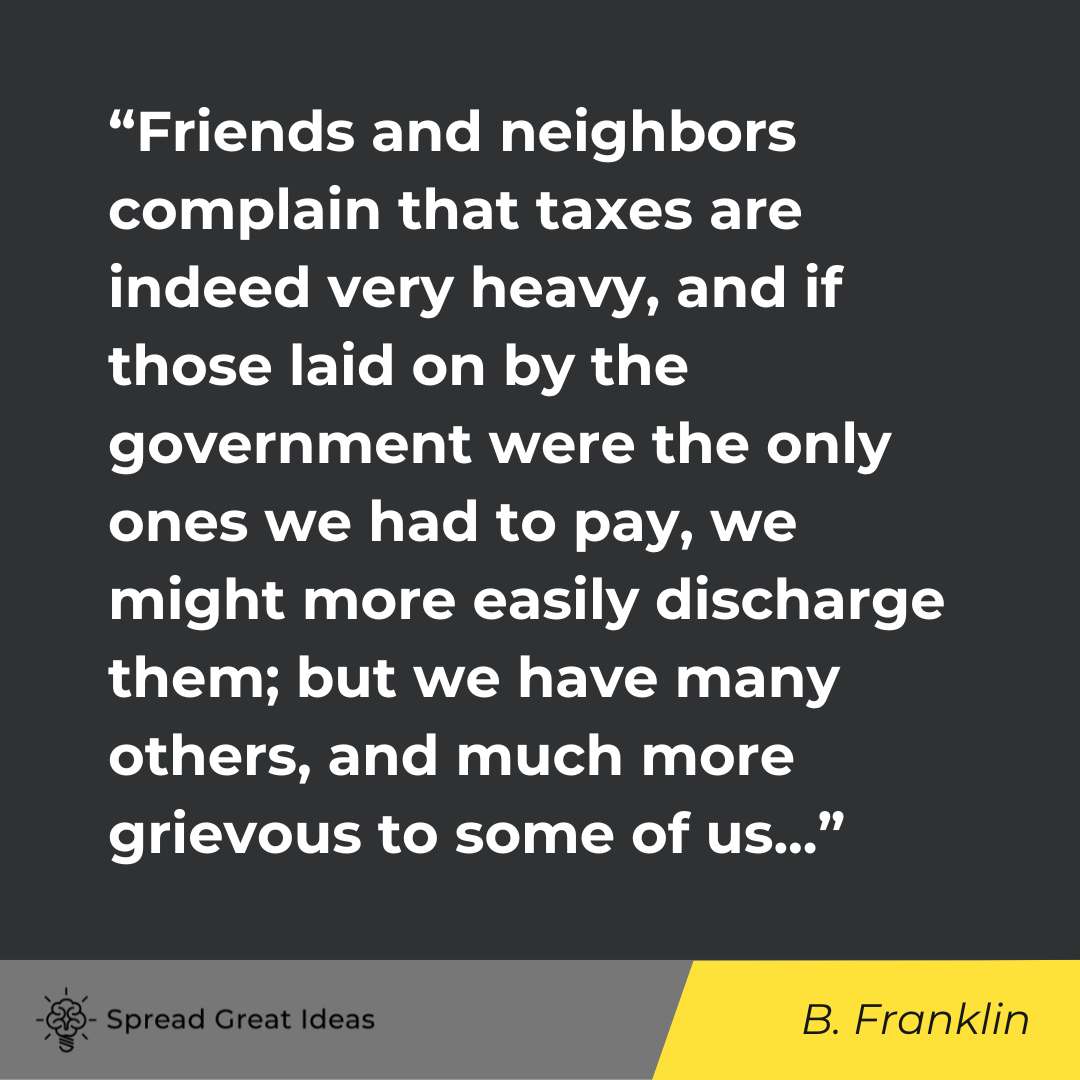
Rene Descartes
“And thus, the actions of life often not allowing any delay, it is a truth very certain that, when it is not in our power to determine the most true opinions we ought to follow the most probable.”
– Rene Descartes, Discourse on Method
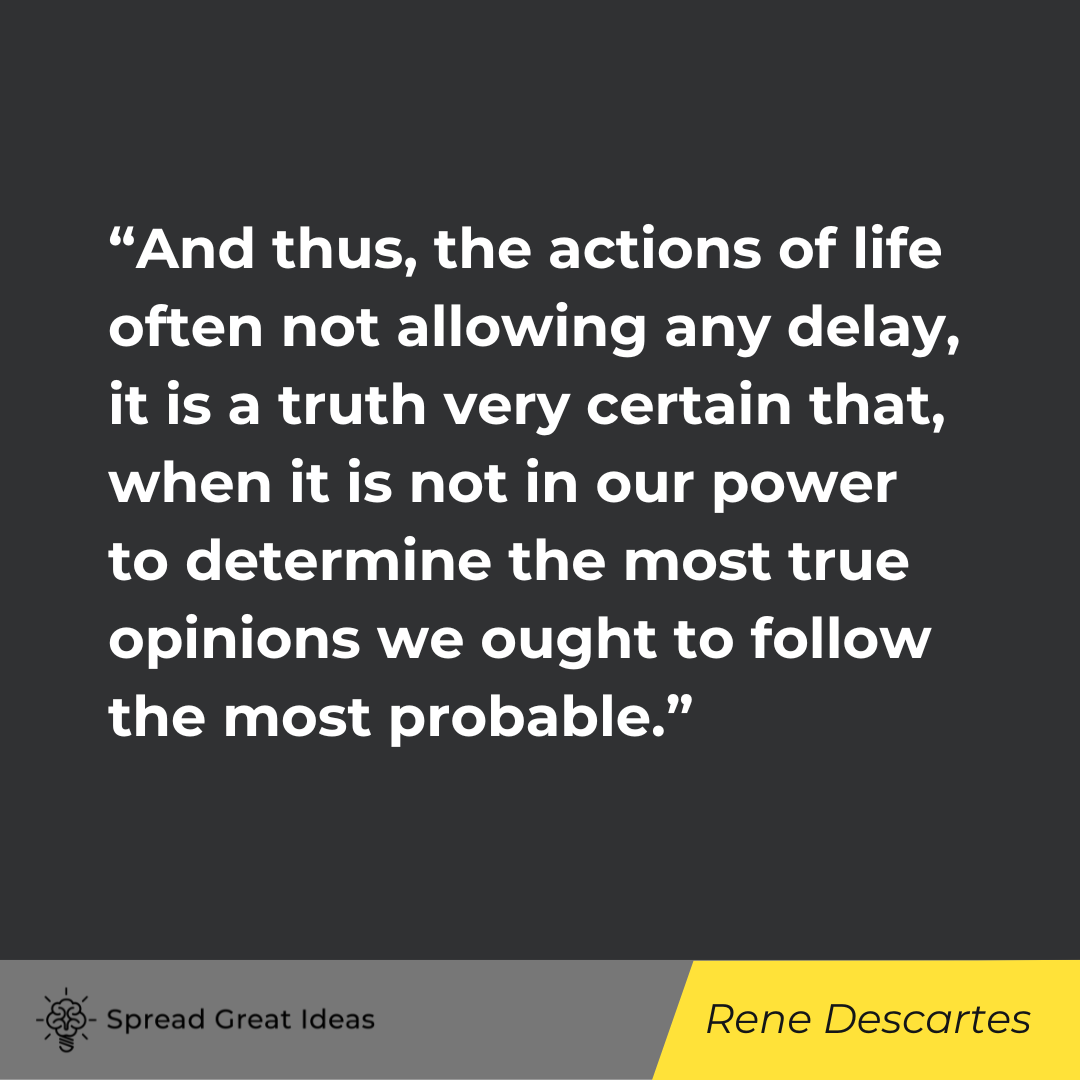
Albert Einstein
“The intuitive mind is a sacred gift and the rational mind is a faithful servant. We have created a society that honors the servant and has forgotten the gift.”
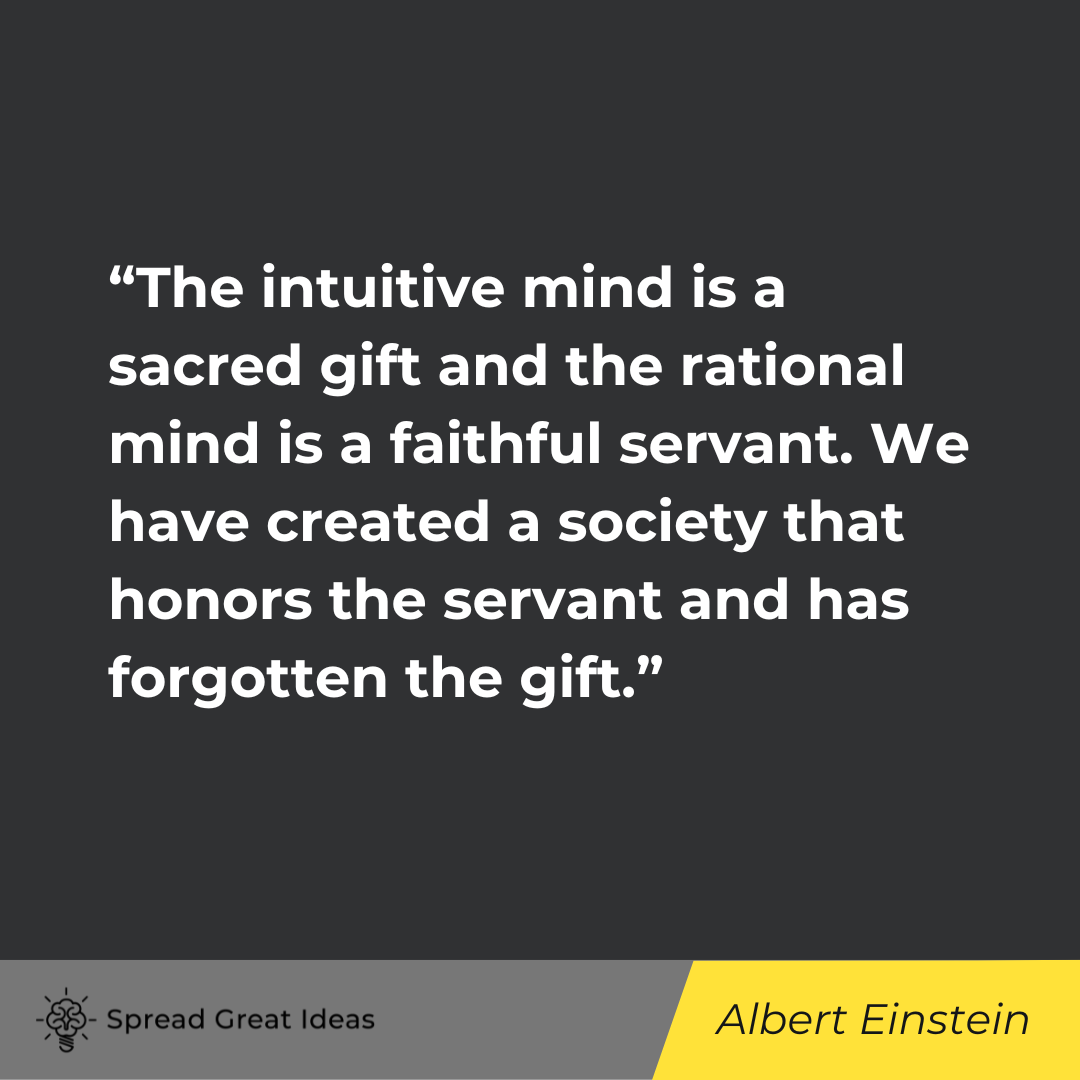
Andrew Carnegie
“He that cannot reason is a fool. He that will not is a bigot. He that dares not is a slave.”
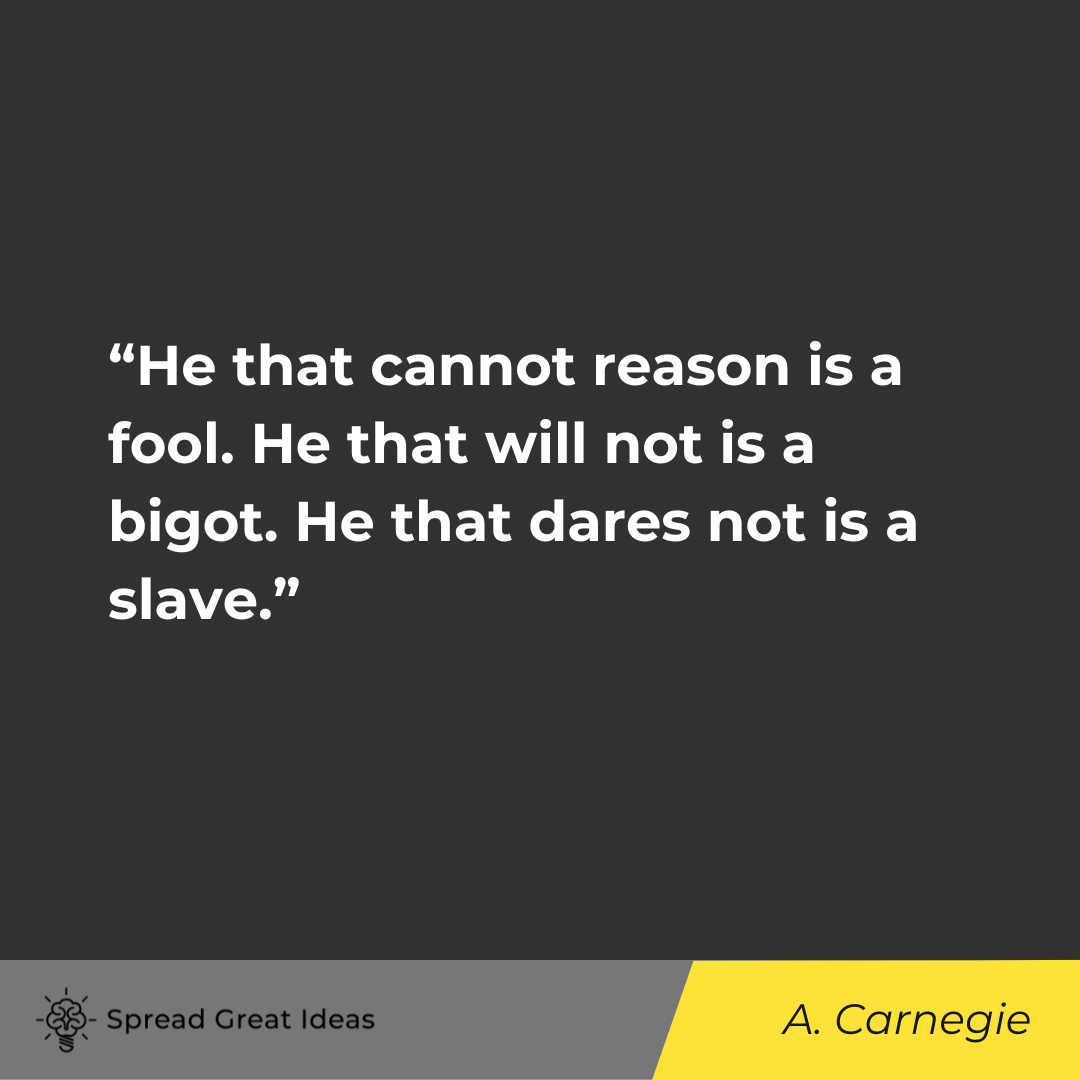
Ayn Rand
“Since knowledge, thinking, and rational action are properties of the individual, since the choice to exercise his rational faculty or not depends on the individual, man’s survival requires that those who think be free of the interference of those who don’t. Since men are neither omniscient nor infallible, they must be free to agree or disagree, to cooperate or to pursue their own independent course, each according to his own rational judgment. Freedom is the fundamental requirement of man’s mind.”
– Ayn Rand, Capitalism: The Unknown Ideal
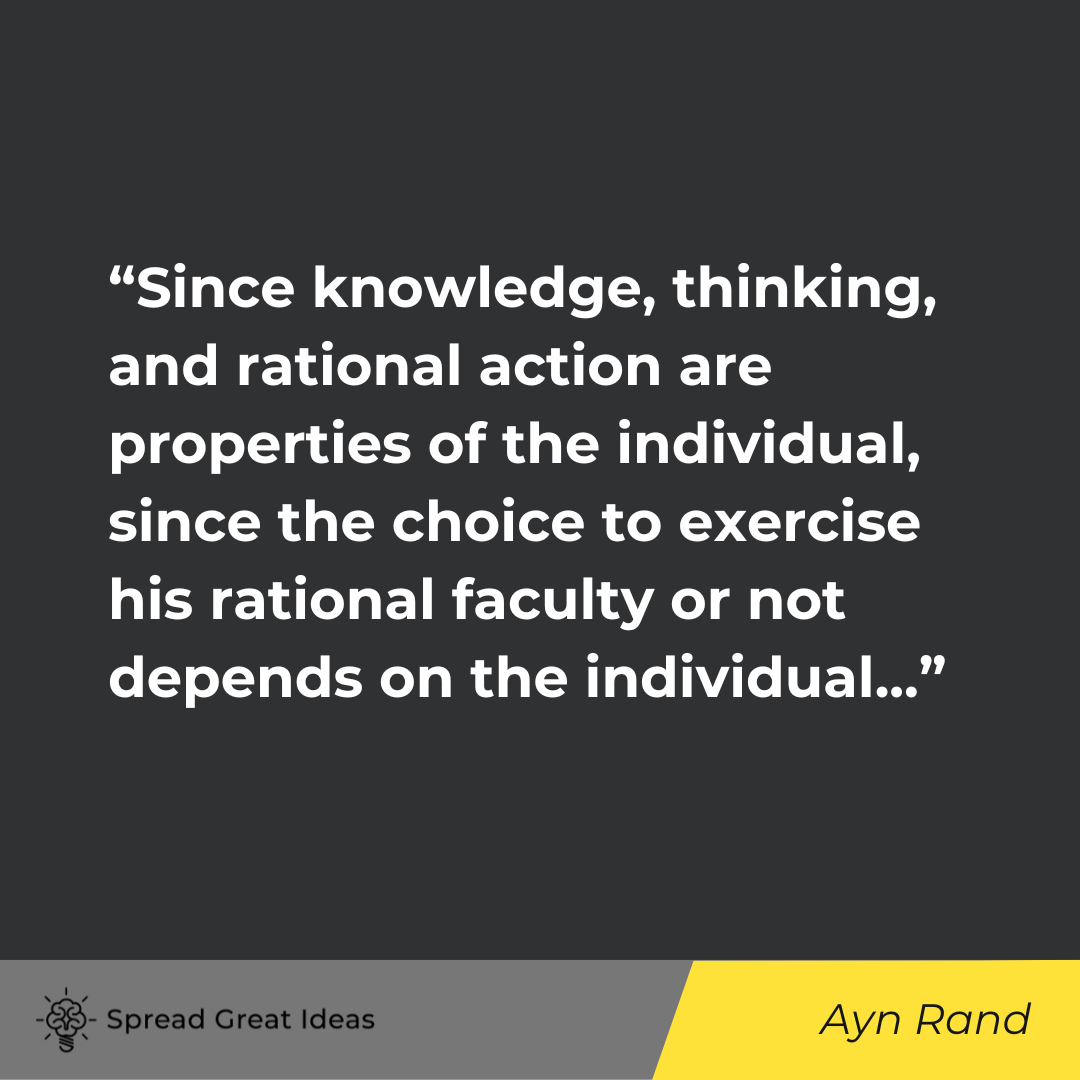
“A rational mind does not work under compulsion; it does not subordinate its grasp of reality to anyone’s orders, directives, or controls; it does not sacrifice its knowledge, its view of the truth, to anyone’s opinions, threats, wishes, plans, or “welfare.” Such a mind may be hampered by others, it may be silenced, proscribed, imprisoned, or destroyed; it cannot be forced; a gun is not an argument.”
– Ayn Rand, Capitalism: The Unknown Ideal
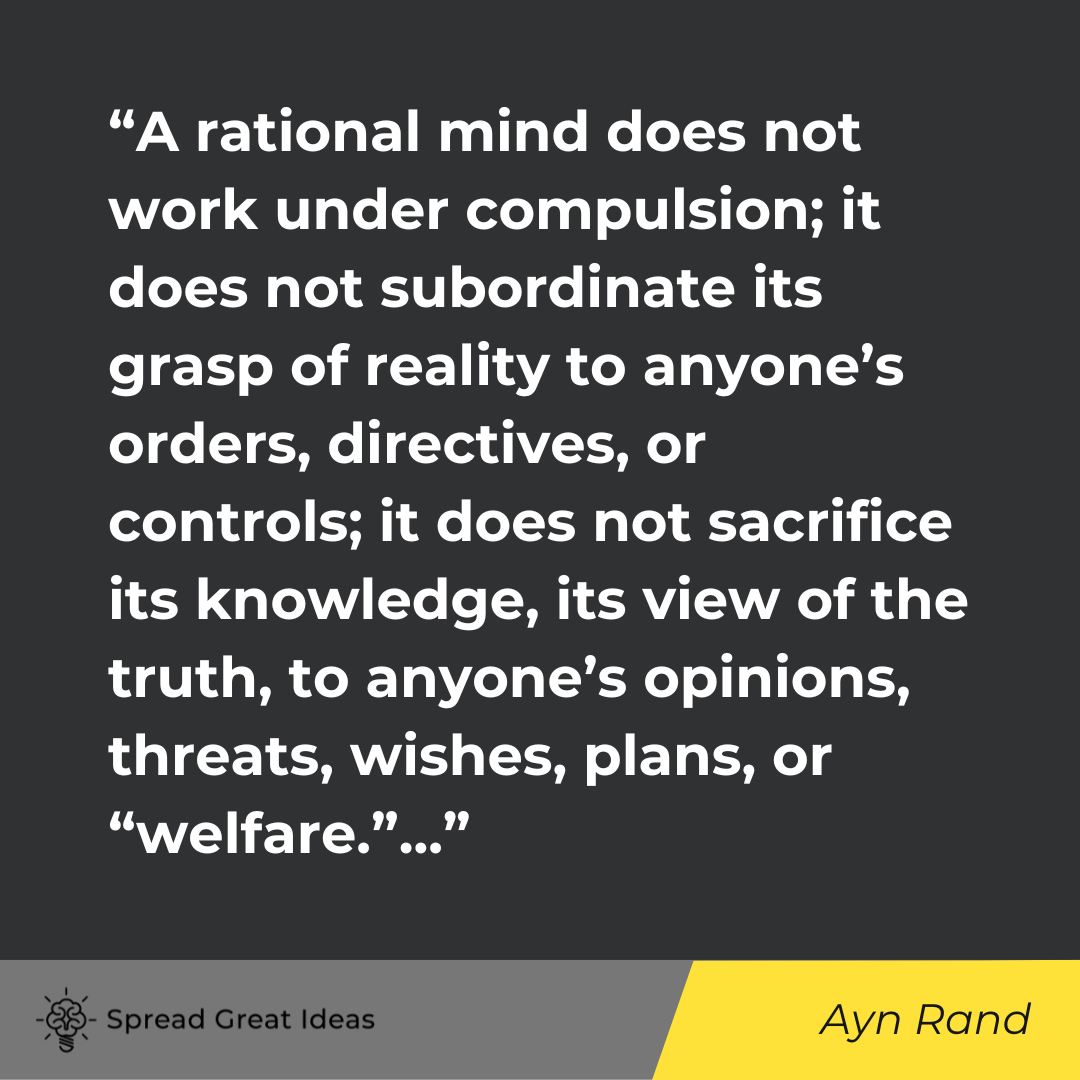
“It is from the work and the inviolate integrity of such minds—from the intransigent innovators—that all of mankind’s knowledge and achievements have come. It is to such minds that mankind owes its survival.”
– Ayn Rand, Capitalism: The Unknown Ideal
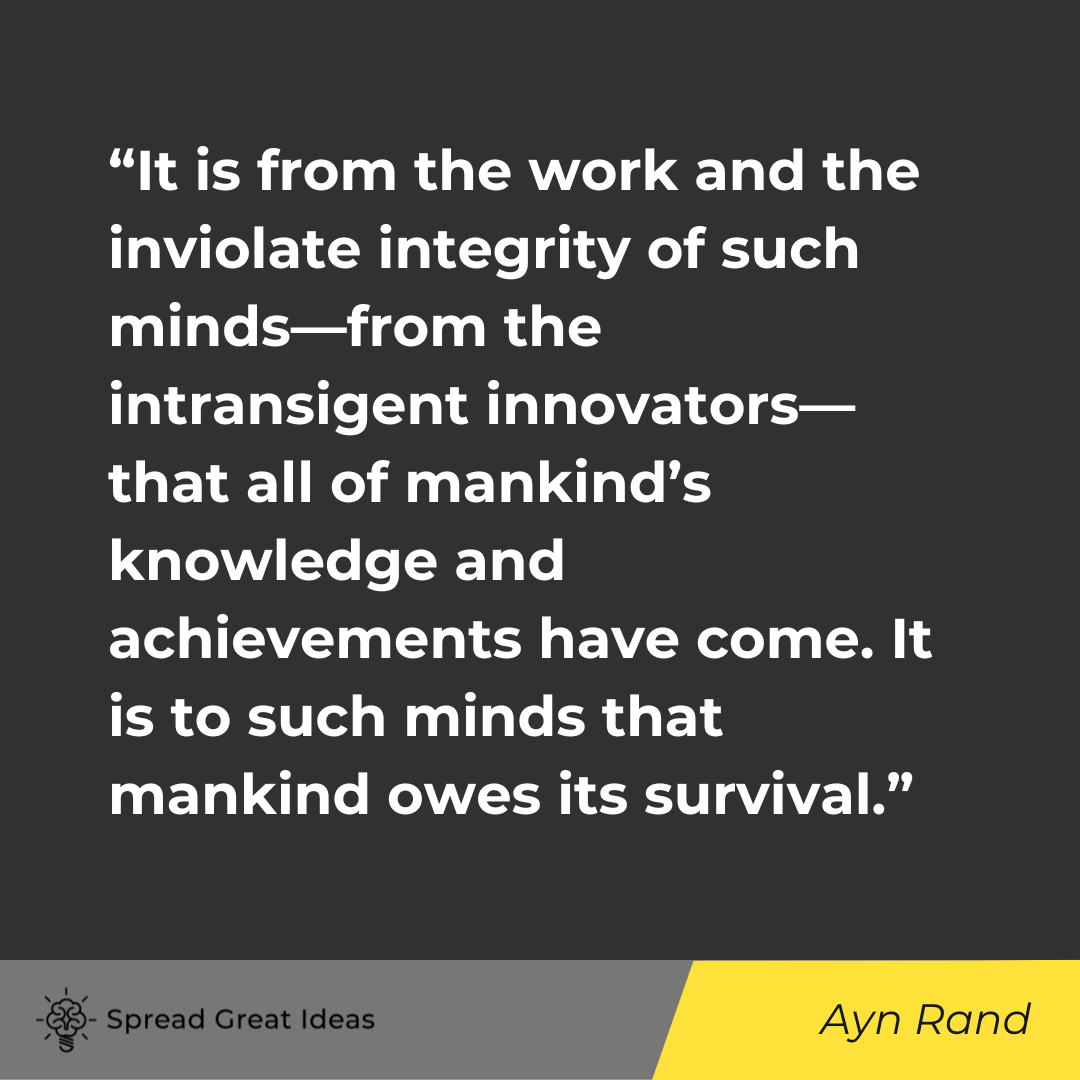
Karen Joy Fowler
“Emotion and instinct were the basis of all our decisions, our actions, everything we valued, the way we saw the world. Reason and rationality were a thin coat of paint on a ragged surface.”
– Karen Joy Fowler, We Are All Completely Beside Ourselves
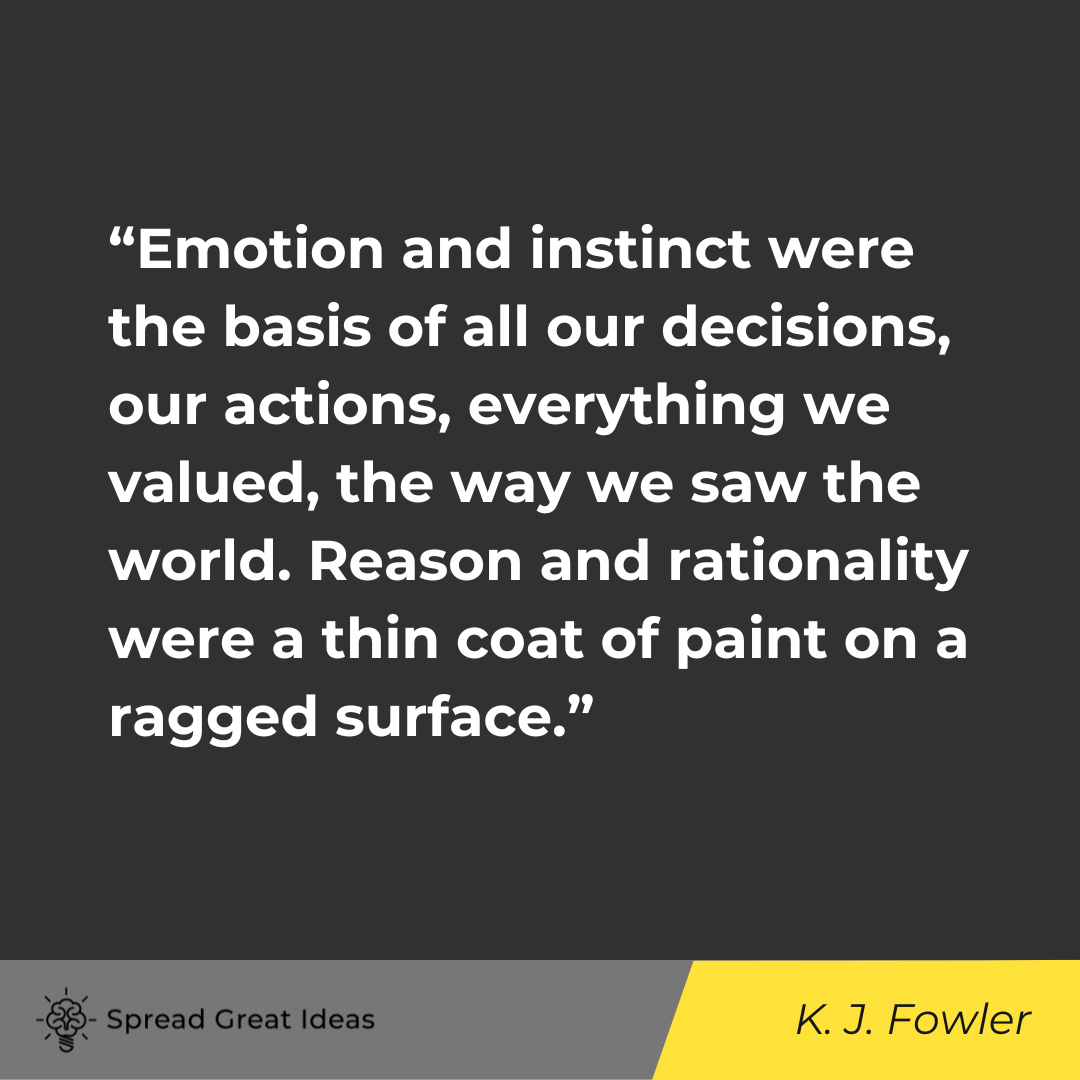
Plato
“It’s not at all uncommon to find a person’s desires compelling him to go against his reason, and to see him cursing himself and venting his passion on the source of the compulsion within him. It’s as if there were two warring factions, with passion fighting on the side of reason. But I’m sure you won’t claim that you had ever, in yourself or in anyone else, met a case of passion siding with his desires against the rational mind, when the rational mind prohibits resistance.”
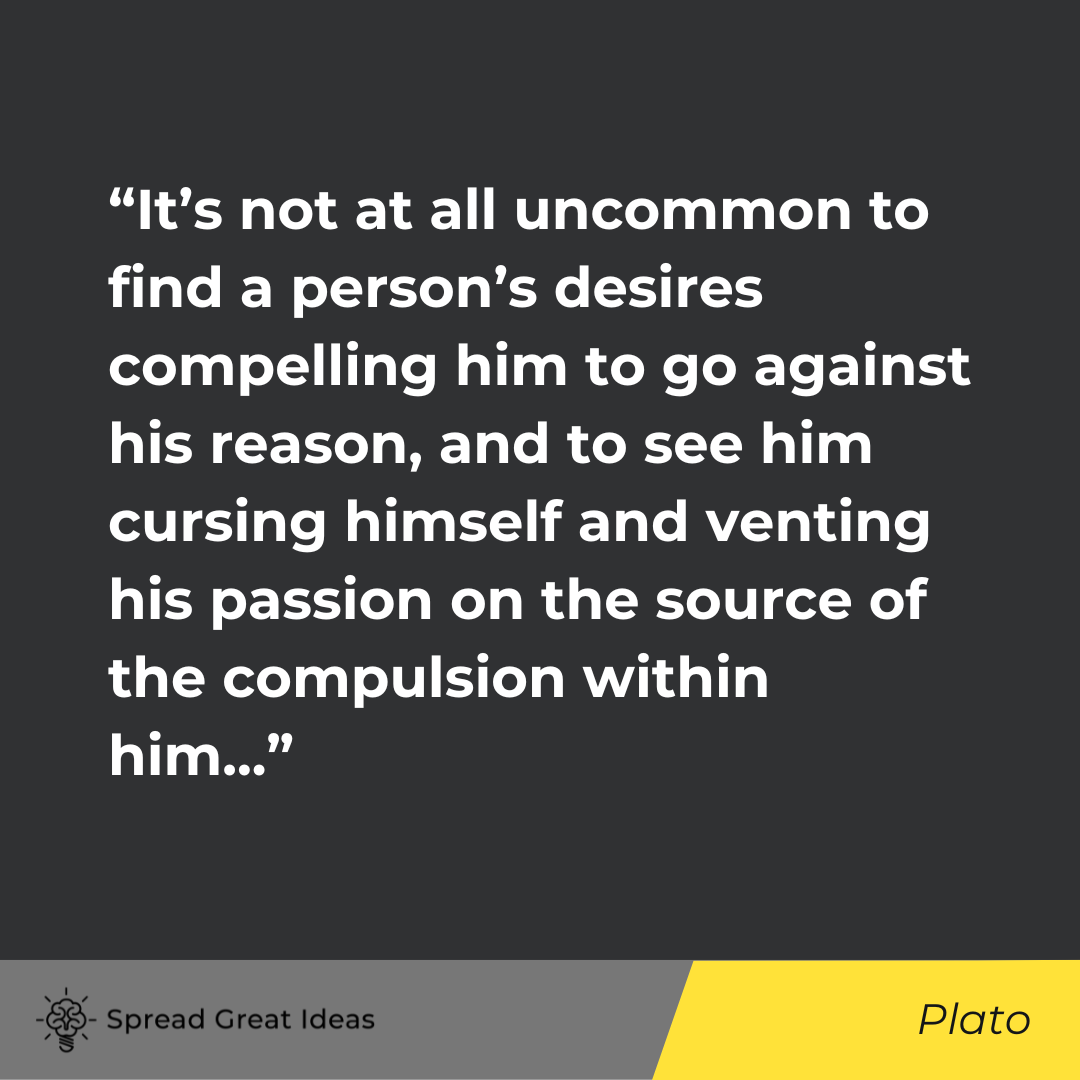
Agatha Christie
“Everything must be taken into account. If the fact will not fit the theory—let the theory go.”
– Agatha Christie, The Mysterious Affair at Styles
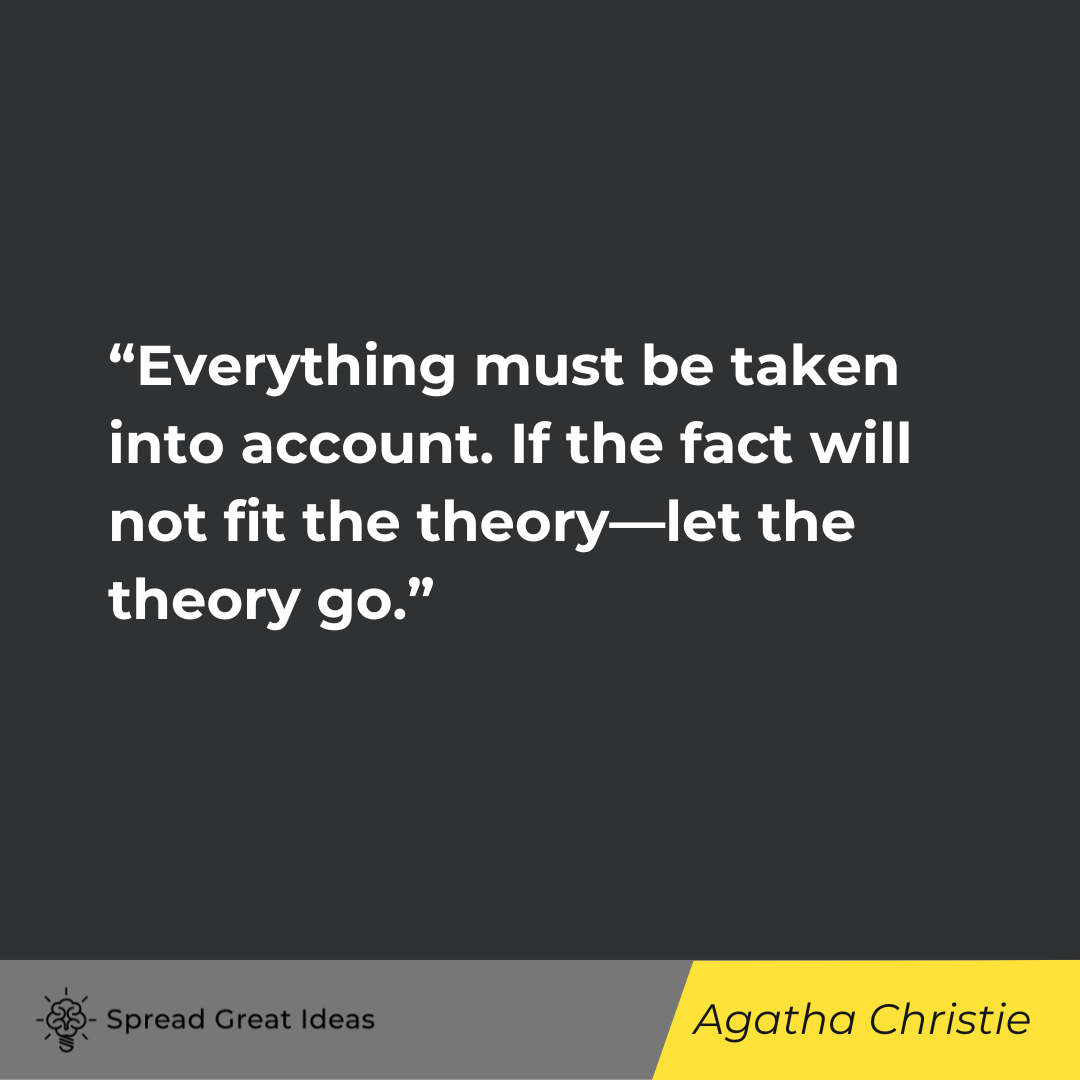
Ben Shapiro
“Facts don’t care about your feelings.”

Katharine Hepburn
“If you obey all of the rules, you miss all of the fun.”

Mae West
“You only live once, but if you do it right, once is enough.”
– Mae West
